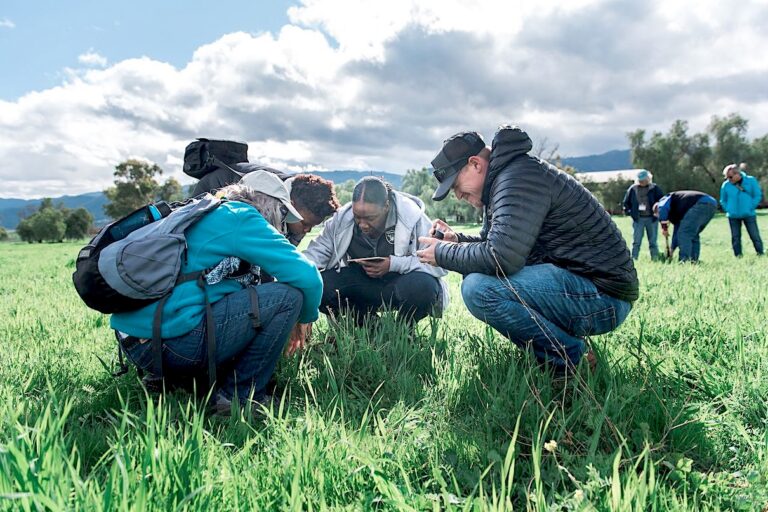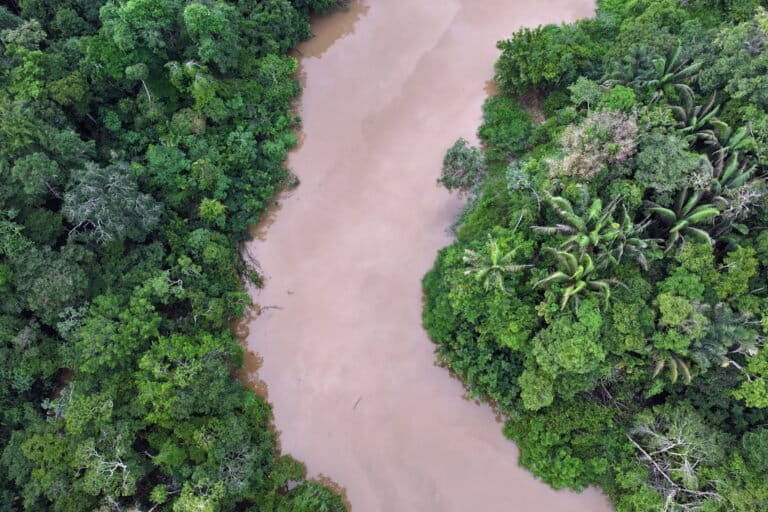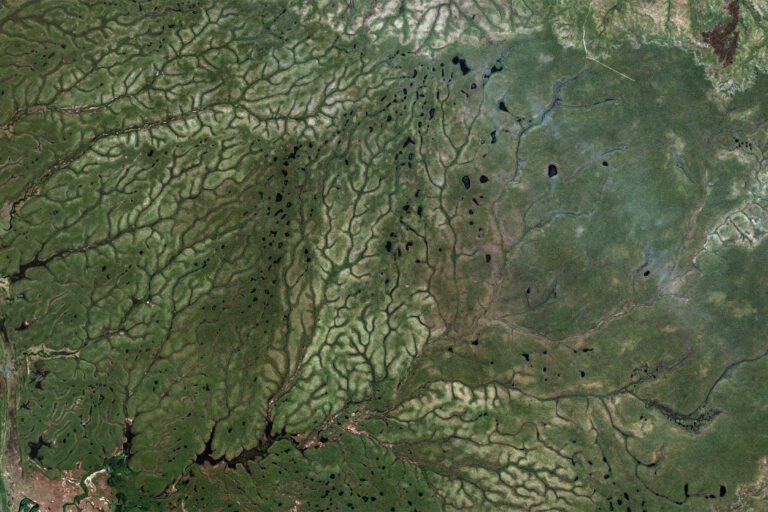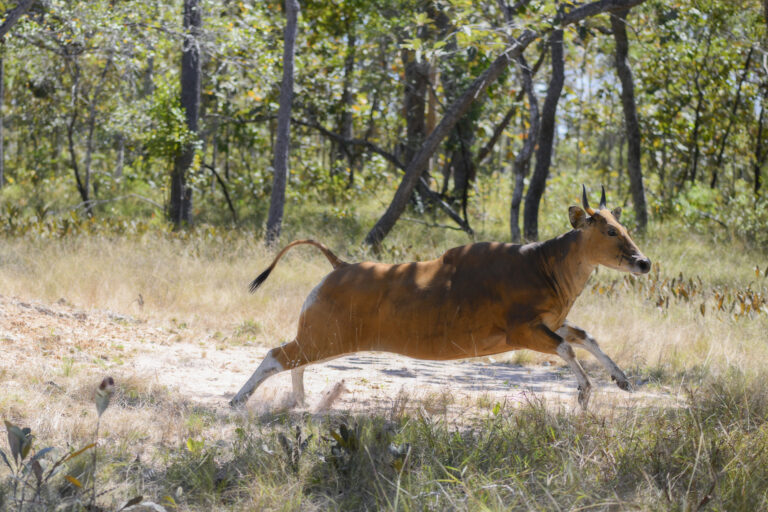- Gryphon Productions’ “Tree Lions” and “Mountain Gorillas” will be screened at the 2016 Wildlife Conservation Film Festival (WCFF) in New York, NY.
- Peter Von Puttkamer’s first mission is to entertain and captivate an audience–achieved with Gryphon Productions’ stunning shots of legendary, often dangerous creatures in their natural habitats.
- Puttkamer’s films exist to send an important message to the audience about human relationships with animals, and how the reach of our actions and our conflicts transcends species.
Peter Von Puttkamer carries out two separate missions while making his award-winning programming.
His first mission is to entertain and captivate an audience–achieved with Gryphon Productions’ stunning shots of legendary, often dangerous creatures in their natural habitats, along with the presence of Niall McCann–an adventurous Biologist whose dedication to wildlife education knows no bounds.

The second mission is what sets his work apart. His films exist to send an important message to the audience about human relationships with animals, and how the reach of our actions and our conflicts transcends species.
“Mountain Gorillas” and “Tree Lions” are two of Gryphon Productions’ films that explore “larger than life” animals and the human-animal conflict that regularly puts our wildlife and environment at high risk.
AN INTERVIEW WITH PETER VON PUTTKAMER
Carly Rome for Mongabay: Tell us about the inspiration for this series.
Peter Von Puttkamer: The series in general was designed to be a wildlife adventure series, but we’re really looking at human-animal conflict. We try to look at animals who have this “larger than life” and legendary personality or figure in people’s minds–being massive, and scary, and all that. We look at the actual conflict happening between those animals and the humans that live nearby, and how their clashing needs create a lot of turmoil.
It wasn’t just a matter of putting Niall, our host, in there. It was the idea of having him join other people who are trying to save the animals and learning more about those people in the process. We are looking at conservation efforts for these animals, and exploring ways to improve their lives.

Carly Rome for Mongabay: What made you pursue “Tree Lions”? Can you tell us more about these creatures?
Peter Von Puttkamer: Sheera (co-founder, Gryphon Productions) had read about these tree climbing lions in Uganda. We wanted to find out why lions were climbing trees in the first place.
There’s a local war going on between the cattle ranches and the lions. An invasive plant started the whole thing. Colonials brought in a decorative plant that turned out to be poisonous for cows.The cattle were dying, so farmers moved them into national park…but that’s where the lions live.
We wanted to make local communities aware of where these lions are, so we became part of the solution. We provided collars to help track the lions and notify the locals of their whereabouts. Our host joined a Wildlife Conservation Society doctor in the process.
Carly Rome for Mongabay: What about the Mountain Gorillas? What were your experiences filming them?
Peter Von Puttkamer: I had heard about the gorilla doctors, who are American, that work based off of the idea that Mountain Gorillas desperately need medical intervention in order to protect their population.
When we got there, we weren’t certain that we were going to be able to film anything. Some film crews went and came back with nothing. A gorilla in peril can be anything from a baby gorilla with a snare, or a large male that’s wandered into a village or inhabited area. The timing and communication has to line up.
To our surprise, we got a call almost immediately. A gorilla had been injured, so we traveled 5 hours back to the windy national park where this particular group of gorillas was. What you’ll see in this show is this amazing 8 hour climb we went on to locate the hurt gorilla.
Carly Rome for Mongabay: What is the main goal that you aim to achieve by producing these films?
Peter Von Puttkamer: My goal was to create an entertaining show that delivers an important message about the welfare of massive, charismatic animals. Quite often, wildlife documentaries just celebrate the beauty of the animals, looking at them how we might have looked at them 40-50 years ago. It doesn’t tell the full picture. We wanted to show the problems that these animals are facing today as well as the solutions.
Wildlife documentaries are a hard sell on North American television. They don’t get shown much anymore. We wanted to find a way to create a program that was educational, beautifully shot, and entertaining. Our host, Niall, is a scientist who is concerned with the health and wellbeing of these animals. We’re not just getting into dangerous situations–we’re accurately portraying the issues facing these populations and what we can do to help them.
Carly Rome for Mongabay: Which specific environmental issues need our attention most urgently? How can everybody pitch in?
Peter Von Puttkamer: Globally, a lot of the difficulty is that the places where these animals are–these charismatic, large animals–are areas of the world that are war-torn, with a lot of poverty and overpopulation.
In Uganda, they have one of the fastest growing populations in Africa and limited places where these animals can be. When we got to Uganda, there was one area that was just recovering from decades of civil war, and all of the animals were either butchered and eaten or simply killed as the result of being in the middle of a war.
There are so many large, world issues impacting these animals. It’s impossible to stop war in many cases, but I think we should certainly be looking at the way in which companies come in and exploit natural resources. As human populations grow, the animals have fewer places to go…then we add in industry, and there is often nothing left.

You can see more of Peter’s work at www.gryphonproductions.com.
To attend screenings of “Tree Lions” & “Mountain Gorillas,” come to the 2016 Wildlife Conservation Film Festival in New York City! For information about the film schedule, speakers and tickets visit: http://www.wcff.org/2016-film-festival













